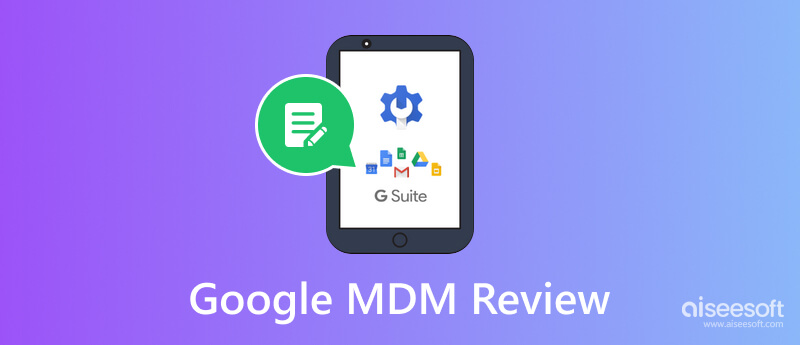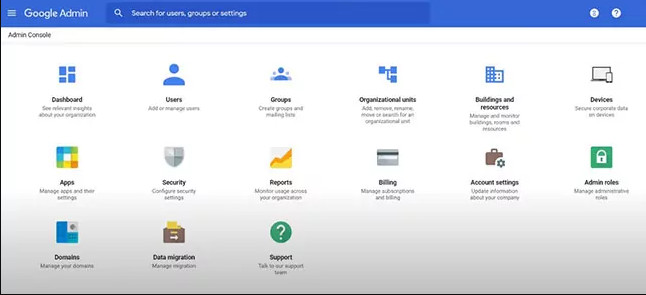One of the standout features of Google MDM is its integration with Google Workspace, providing seamless synchronization between the enrolled devices and the suite of productivity tools. Unlike the alternative, the support makes the centralized administration manage user accounts, device settings, and distribution of applications effortlessly. It has already proven the compatibility of its popular mobile platform and scalability, making it a versatile solution for any organization or industry.
As mobile technology grows, it stands as a reliable ally that aims to stay in the ever-advancing digital space, and today we will review. Let’s dig for more information about the application and see if it suits your needs.

Google mobile device management (MDM) has a comprehensive suite of tools and functionalities created to simplify the management of hand-held devices within an organization. Starting from setting up device policies and configuration to remotely deploying applications and other necessary control to streamline device management workflows. Here is the list of features and functionality for effective mobile device management.

Overall, the Google MDM solution enables administrators to enforce security measures, distribute applications, and have a streamlined workflow that enhances productivity and a secured mobile environment like the other well-performing MDM works.
The basic and advanced mobile management Google is the known Google Workspace MDM featured to control the newly added device. Even if they are under the same name, each differs in the control degree, requirements, and features, like the comparison chart below.
| Features | Basic | Advanced |
| ImagerecyApp Managementcle | Limited control over app distribution | Advanced app management feature such as remote installation, updates, and permissions. |
| Device Enrollment | Android 2.2 and newer Apple iOS 8 and newer iPad OS 13.1 and newer |
Android 6.0 or support work profiles and fully managed mode iOS 12.0 and newer iPad OS 13.1 and newer |
| Password Enforcement | Basic password enforcement | Basic password, standard password, and strong password enforcement |
| Security Measure | Passcode enforcement, hijacking protection, remote account wipe, block and unblock devices, and device audits and alerts | password enforcement, hijacking protection, removing account wipes, device audits and alerts, blocking and unblocking devices, remote device wipes, security policies, and more. |
| Bulk Enrollment for Company-owned devices | Not Supported | Supported |
| Distribute Device Certificates | Not Supported | Supported |
| Agentless Management | Supported | Unsupported |
| iOS app management | Not Supported | Supported |
| Remotely Wipe | Not Supported | Supported |
| Android work profile | Not Supported | Supported |
| Device Approvals | Not Supported | Supported |
As you can see in the chart above, Advanced Mobile Device Management by Google offers better features and capabilities that can help administrators manage and control devices within the organization. If you want advanced control, customization options, and security measures at best, then you should choose this over the basics. However, if you want a simple MDM that Google supports, the basic will fill in the needed gaps.
Do you dislike the policies applied to your iOS by the MDM application? You can use the Aiseesoft iPhone Unlocker tool to unlock your iOS from the MDM option. The application features the safest way to unlock all modes happening on your iOS effectively without wiping out all the data saved on your device. Aside from that, you can also use the app to remove various types of passcodes, including four and 6-digit passcodes, Touch ID, and Face ID, to regain complete control of the iOS. There is no lock problem; this app can not unlock because the app is made to become a solution.
100% Secure. No Ads.
100% Secure. No Ads.
Google MDM vs. Intune? Which one is better?
Both MDM applications provide the same security, management, and organization you will ever need. However, their integration is different since the Google MDM can only integrate with Google Workspace while Intune can be integrated with extensive Microsoft tools. Aside from that, there is nothing dissimilar about these apps, making them the stronghold of MDM.
How much is Google MDM?
The basic plan of the app starts at $ 6 per user monthly, a business plan can go up to $ 12 per user monthly, and the enterprise plans $ 25 per user monthly.
What is the popular integration on Google MDM?
The popular integration currently used by an administrator who uses Google MDM is the Google Cloud Platform, Google Workspace, and Google Cloud Identity. All of the mentioned integrations fall under Google.
What is Google Chromebook MDM?
It is a feature of Google Chrome Enterprise that allows organizations to manage and secure Chrome OS devices, specifically Chromebooks. So, if the device you are using is under Chrome OS, then this is the mobile device management you will ever need.
Does Google MDM need a third party to enroll Android and iOS?
You must have an Android Enterprise to enroll the device and Apple Device Enrollment Program or Apple Configurator to enroll iOS on Google MDM.
Conclusion
What is Google MDM? This question has already been answered thru the help of this article. If you decide to use it, you can follow the steps we have included here to easily enroll your Android and iOS devices into the administrator server. Is your iOS device stuck on MDM mode? You can now remove that with the help of the Aiseesoft iPhone Unlocker. Connect your device to your computer and let the app unlock it.

To fix iPhone screen locked, wiping password function can help you a lot. And you also can clear Apple ID or Screen Time password easily.
100% Secure. No Ads.
100% Secure. No Ads.